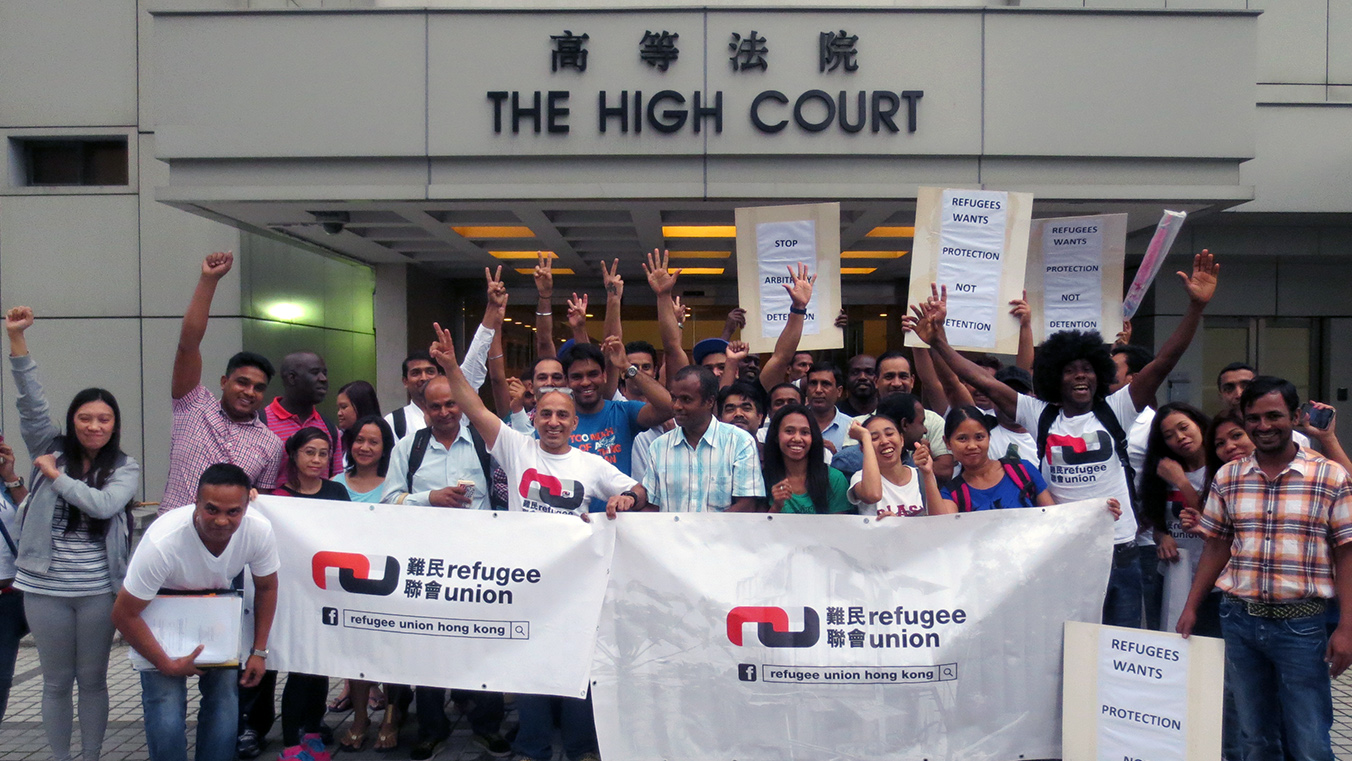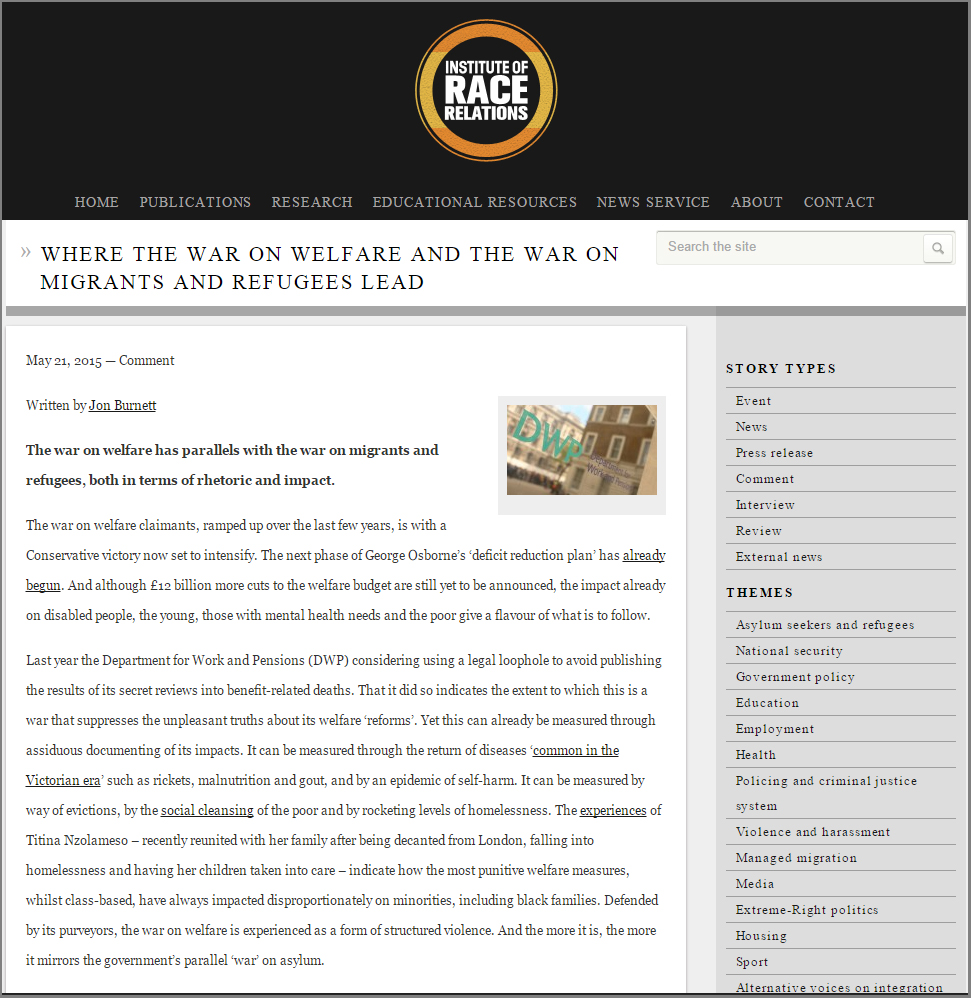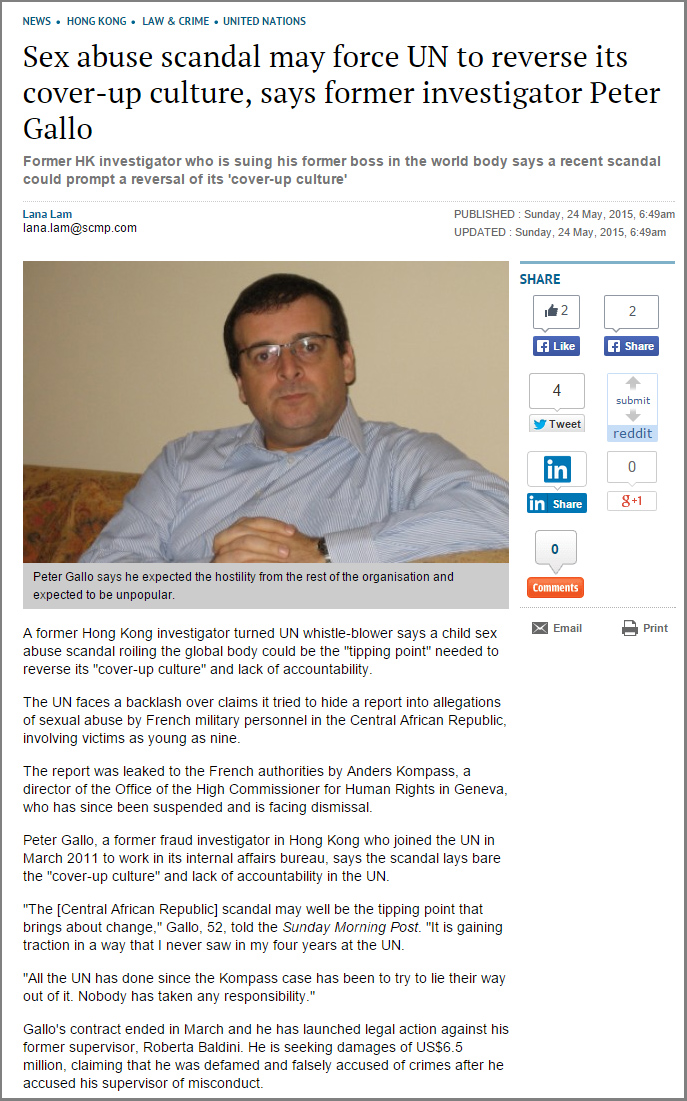Archive
Refugee community welcomes food coupons with reservation
Jun 2nd, 2015 | Food, Refugee Community, Welfare | Comment
At 1pm on 28 May 2015 the first message about the food coupon distribution circulated on social media. A father of three informed, “Whoever will go to sign at ISS will receive 1200$ coupons, each coupon valued 100$…. But there are limited items to choose. Not all items [are available]. Toiletries will collect from ISS offices the day of signing.”
It was good news though a distressed refugee called Vision First later that evening after returning from his first experience at Wellcome. He said words to this effect, “I went to Wellcome, but there is no Halal food. I asked the staff and they say they don’t have it. Sir, what can I do?”
Long-time observers of the asylum sphere might agree that the policy shift from the staunchly supported in-kind food distribution to supermarket coupons is nothing less than remarkable. While the authorities are unlikely to publicize the underlying research and ensuing rationale for the reversal, the change might indicate government resolve to counter questionable practices.
From a broader prospective, Vision First has been informed that independent ethnic grocery shops in Kowloon are pleased with the development although profits from the new SWD tender (estimated at over 100 million HKD for food alone) will flow exclusively into the coffers of Dairy Farm, the owners of Wellcome supermarkets, listed on the London Stock Exchange and member of the Hong Kong conglomerate Jardine Matheson Group.
A shop owner explained, “The coupons will stop the trading of ISS supplies that halved the price of flour, sugar, oil and rice around the [ISS appointed grocery] shops. Other owners reported that the middlemen stopped re-selling [ISS food items]. They were buying it cheaply from refugees and selling it to shops, restaurants and residents. Also, a wholesaler said that business picked up because shops now buy from them after the cheap reselling stopped.”
Refugees have largely reacted positively, though some mothers complained they could not buy baby formula, despite others succeeding at different branches. A refugee posted, “One of my friends went to Waihong [Chinese name for Wellcome] and wanted to buy mill for her baby and the cashier said that she can’t buy the milk with the coupon. So what is the use of the coupon that we get from ISS if we can’t buy the milk for our babies?”
Another mother was told by her caseworker that baby formula was an accepted item, though others lamented that fresh milk was excluded. Although it represents a new disruption to refugee service that could have been reasonably prevented, it is understandable that a grace period may be required to resolve service variations. Another refugee reported, “Not all Wellcome shops are well-instructed. Out of 5 shops, only 2 are OK. One shop told me I can buy only rice and noodles, nothing else.”
On the other hand, a Refugee Union member posted, “Some people from Sham Shui Po called me today. They are very happy with [the food coupons] … Yesterday I talked with one Wellcome saleswomen. She said they are preparing all the kinds of food for us. They need a little more time. And as I know that electronic coupons are coming also. So let’s wait and see.” Could this refer to an Octopus-like card replenished by ISS-HK monthly that would allow less than 100$ purchases as change is not offered for the coupons?
Finally on a positive note, a lady posted a photo of the groceries she collected from Wellcome with the comment, “This is what I buy from Wellcome today and all is OK” Her message received an encouraging response from another refugee, “As for the adult foods, we are OK. We were able to get want we want and of good quality. WE ARE HAPPY. WE FEEL THAT WE ARE HUMAN WHO CAN ALSO PURCHASE IN SHOPS JUST LIKE ANYBODY ELSE. AND FOR THIS WE THANK VISION FIRST AND THE REFUGEE UNION.” (original emphasis)
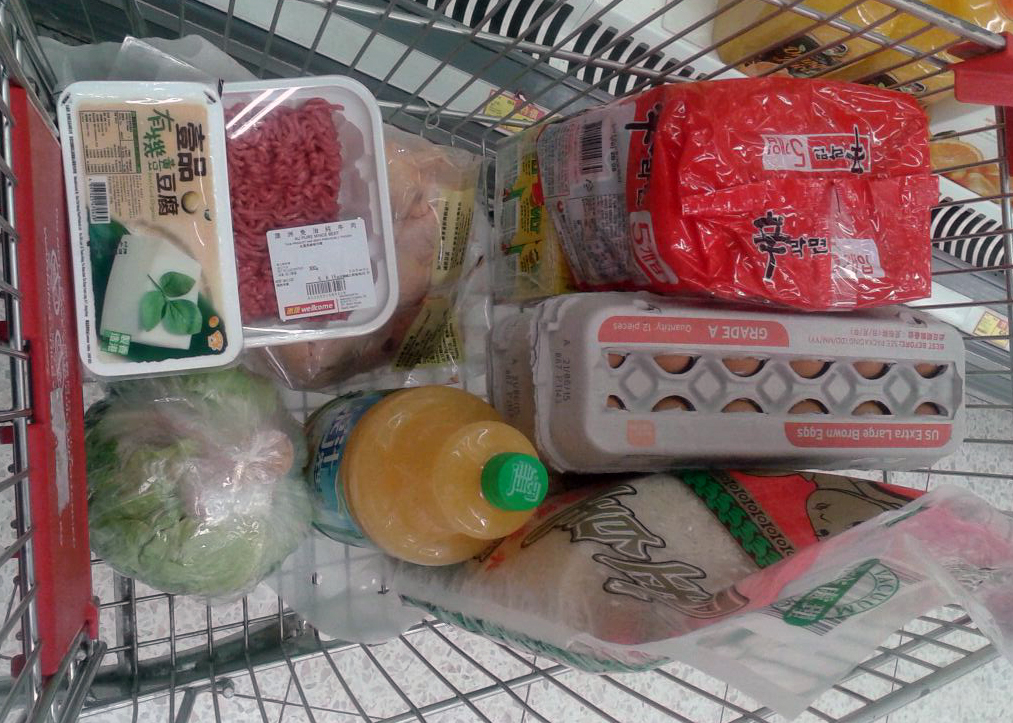
IRR – Where the war on welfare and the war on migrants and refugees lead
Jun 1st, 2015 | Media | Comment
Migrant or Refugee: a new lexicon
Jun 1st, 2015 | Media | Comment
To inform public opinion and official bureaucracy, Vision First publishes original stories of HK based refugees and reposts articles that may bear little geographical affinity, and yet resemble what is not a only a local, but a global problem created by predatory capitalism and opportunistic ignorance in countries of origin and destination alike.
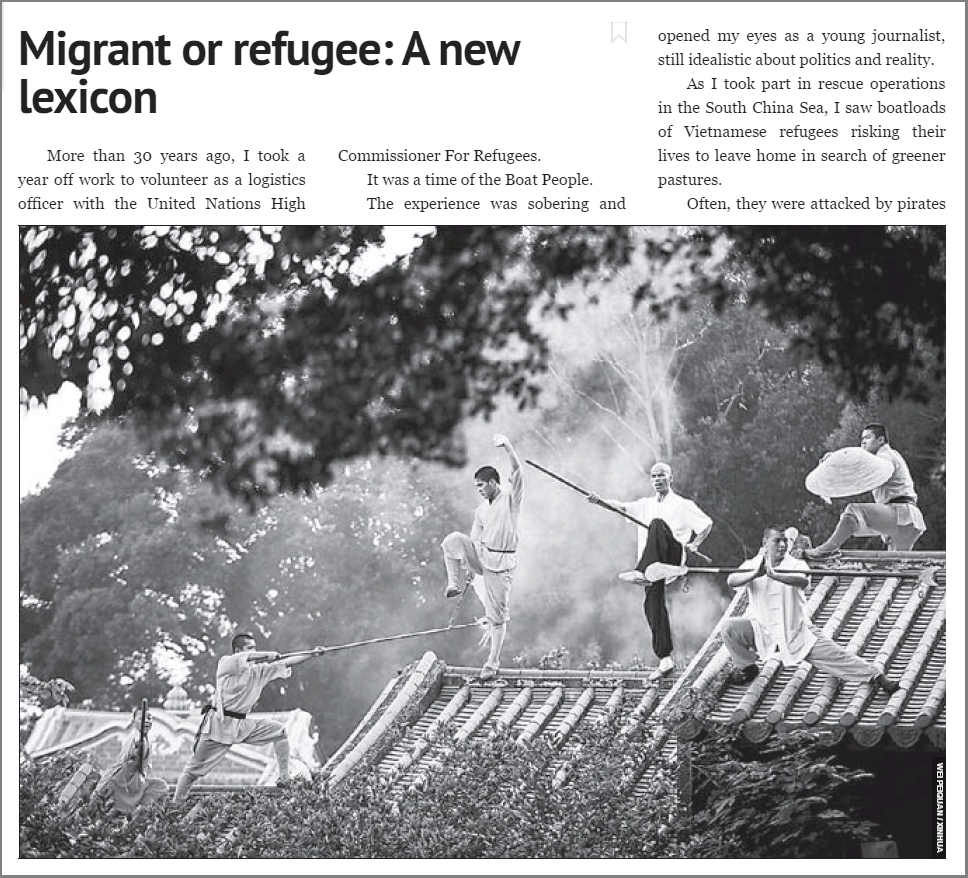
LegCo Welfare Panel to discuss refugee aid on 8 June 2015
May 30th, 2015 | Food, Government, Housing, VF Opinion, Welfare | Comment
On 1 April 2015, Vision First and the Refugee Union launched an action to file complaint letters with the Legislative Council Redress System. Several hundred letters were completed and lodged with the assistance of lawmaker Fernando Cheung Chiu-hung and his hardworking team.
The complaints to the Legislative Council summarized the daily plight of refugees who rely entirely on government welfare and are not allowed to earn an honest living. Most often, refugees have no savings, certainly no lawful income and most commonly cannot rely on limited social networks and NGO assistance.
It is widely recognized that the current levels of assistance offered refugees are grossly inadequate: $1500 in rent assistance, $1200 in food coupons and a few hundred dollars for utilities and transportation. Refuges are loath to rely exclusively on welfare, but stringent immigration policies punish them for working and leave them with no alternative.
Vision First request that the Hong Kong Government, the Security Bureau and SWD fulfil their obligation to provide for asylum seekers and refugees’ basic financial, material needs or otherwise. These needs include, but are not limited to, appropriate quantity and quality of food assistance, payment of full rent and utilities, payment of full rental deposits to landlord, daily necessities like cooking gas, clothing, health care, transport allowance for required trips always payable in full and in advance. We request that ISS-HK sign the Tenancy Agreements as refugees have no savings or income to pay rent balances every month.
Vision First further request that a Task Force be established to investigate why persons requesting and having been granted international protection in Hong Kong have been left destitute despite a system being in place to disburse government funding to prevent this condition from happening. Such policy failures have caused refugees needless and unreasonable physical, mental and psychological suffering.
On 22 April 2015, Vision First and representatives of the Refugee Union met with the Hon. Fernando Cheung Chiu-hung to present these concerns to the Legislative Council’s Panel on Welfare. Vision First noted that deterrence objectives and criminalization of vulnerable foreigners should not overshadow welfare considerations when refugees are suffering in our community. It stands to reason that, if work rights are denied to refugees, the authorities have a legal and moral obligation to increase welfare to realistic levels consistent with human right laws.
Following the above initiative, we are pleased to inform that the Legislative Council’s “Panel on Welfare Services” has scheduled “Issues relating to welfare of refuges, torture claimants and asylum seekers” for their meeting on Monday, 8 June 2015. Refugees are invited to submit suggestions to Vision First early next week.
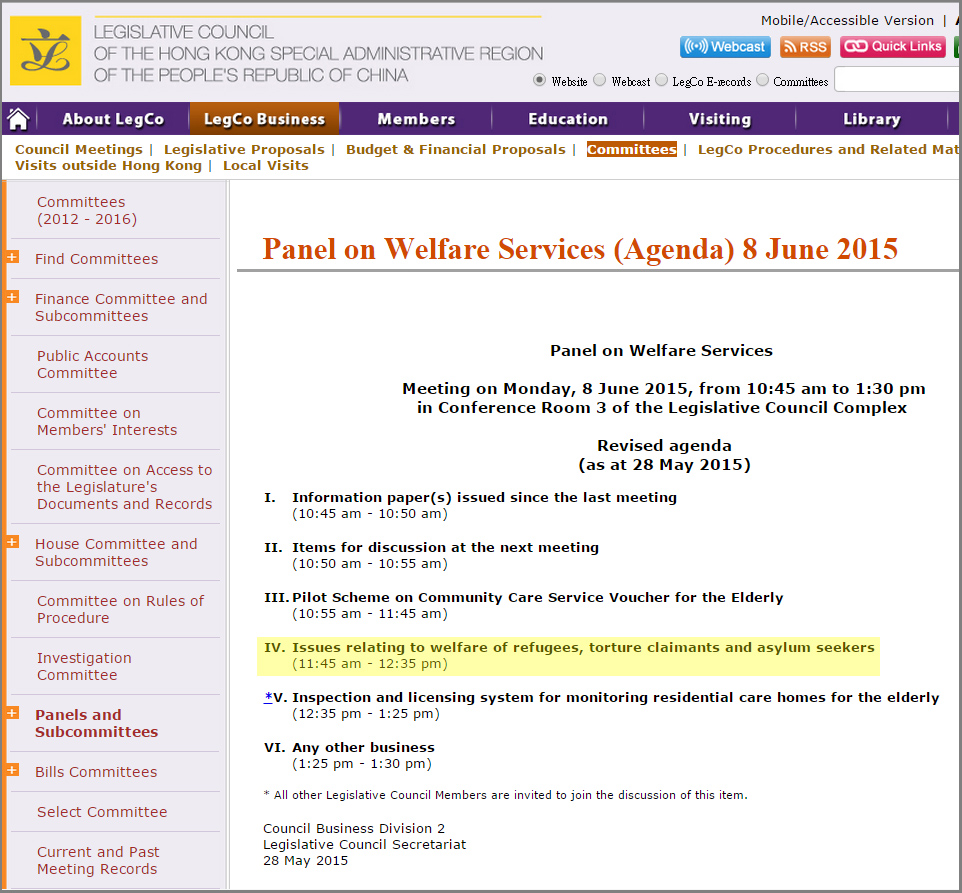
Supermarket coupons replace in-kind food distribution for refugees
May 29th, 2015 | Food, Refugee Community, Welfare | Comment
Remarkable events over the past year demonstrate that refugees can affect change when they work together. Consideration should be given to the events that led to the introduction of supermarket coupons to replace the in-kind food distribution that has been the preferred arrangement since humanitarian assistance for refugees was introduced in 2006.
“We request the immediate introduction of itemized price to ISS food collection forms … it is vitally important that we … are informed and allowed to make informed decisions on what is available, at what price and in what quantity.”
On that morning refugees staged a sit-in at three branches of ISS-HK to protest against practices alleged to reduce the value of rations and cause widespread hardship to refugees who rely on government assistance and face 15 to 22 months incarceration if arrested working.
The Media investigated the food distribution system established for refugees which was claimed to compromise food security rights for the asylum population.
On 19 February 2014, the South China Morning Post reported that:
“Post’s research supports claims that food supplied by government contractor is worth much less than its stated value … A comparison found that buying the goods on the lists would cost between 13 and 30 per cent less than the HK$ 1,060 worth of food ISS was contracted to provide … The amount for groceries increased to HK$ 1,200 this month after government nutritionists deemed an increase necessary.”
On 20 February 2014, Metro Daily published its investiation:
“Refugees were left hungry like dogs … The government has increased the amount of assistance to be provided to refugees … investigations have found that the food they are receiving from ISS is less than the amount set by the government by at least 25% … That adds up to just $900 per month and this is less than the official aid amount by $300.” (Translation)
On 9 March 2015, Cable TV reported the results of its investigation:
“The food rations refugee collect every month have ‘shrunken’. We investigated how much the reduction is and where the missing money goes … Our reporter took his food packages to compare prices at the market. The total price of his monthly food was $993.30 or $200 less than his $1200 food allowance. Also the weight of the food Hassan collected is less than what he selected in the forms … Our reporter also found that other refugees receive ‘shrunken’ food collection … about 20% less.” (Translation)
In March 2014 the refugee community was disappointed by the initial reaction of the Social Welfare Department that dismissed many documented complaints:
“The SWD has conducted in-depth investigations into over 20 complaints made by service users about the undesirable quality and quantity of the food they received. Investigation results showed that the complaints were not substantiated. The SWD will continue to take each and every complaint seriously.”
Nonetheless, the Refugee Union directed numerous complaints to the SWD head-office on a regular basis and established trust with senior welfare officers who became increasingly sympathetic with the problems brought to light. While powerless to increase the actual levels of assistance, the SWD considered implementing remedial actions.
Cautious optimism spread in December 2014 when the SWD issued a new servive tender requesting that:
“The Contractor shall provide each Service User with food of different varieties … in the form of food coupons that should be non-transferable and non-cashable.” While concerns were raised about the actual implementation of the scheme – for example, would the current shops be involved – the shift away from emergency rations was welcomed.
Finally on 28 May 2015, the Refugee Union’s relentless campaign scored a historic victory with the introduction of food coupons from “Wellcome”, self-described as the largest and longest established supermarket chain in Hong Kong with 280 stores serving more than 16 million customers every month.
Initial reactions are positive. Yet it is reported that the Refugee Union will monitor the implementation of the system, one member noting possible shortcomings:
“There is another issue about food items which we South East Asians eat, like atta, dall, basmati rice. Will these be available at (Wellcome)? And one thing more during I was at ISS office I heard a (refugee) was arguing with officer about halal meat problem. So I asked my officer why ISS did not get refugee representatives’ advice before the take any decision?”
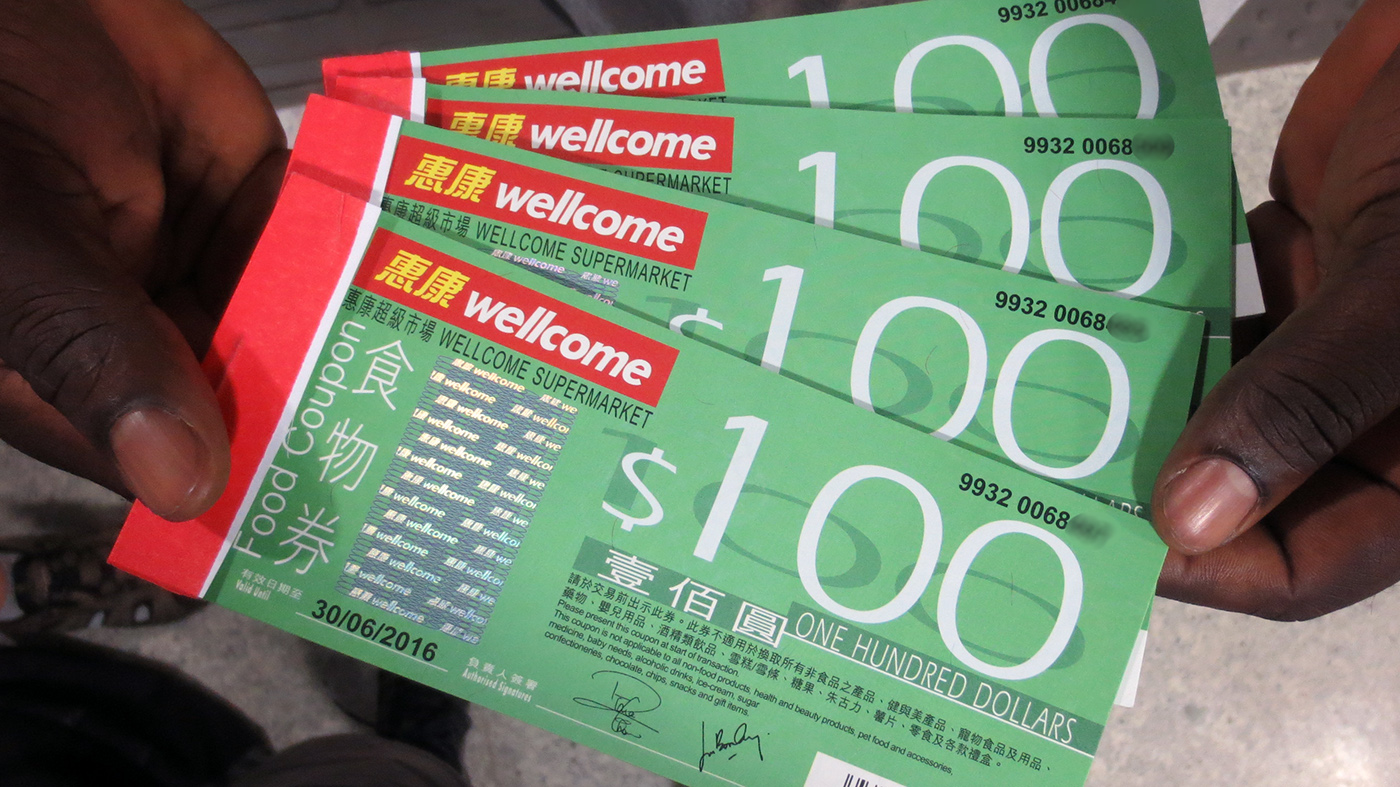
Habeas Corpus denied but stay of deportation granted by court
May 28th, 2015 | Immigration, Legal, Rejection | Comment
On 23 December 2014, Mr. Q arrived in Hong Kong and was refused permission to land and, on the same day, lodged a non-refoulement claim (USM) with the Director of Immigration. On the following day Mr. Q was transferred to Castle Peak Bay Immigration Centre (CIC) where he was held pending the final determination of his asylum claim. He remains incarcerated there to this date.
On 3 February 2015, Mr. Q submitted his asylum form with the assistance of a duty lawyer and a screening interview was conducted on 17 February. On 24 February 2015, a review of Mr. Q’s detention was conducted and he was refused release on recognizance on two grounds: 1) his claim would be decided within a reasonable time, and 2) he did not have a fixed abode or close connections (e.g. family or friends) in Hong Kong to make it likely that he will be easily located if released.
On 9 March 2015, a Notice of Decision was sent to Mr. Q through DLS whereby he was informed of the rejection of his non-refoulement claim. On 19 March, Mr Q filed his Notice of Appeal of his USM claim with the Torture Claims Appeal Board (TCAB). On 20 and 26 March, reviews of his detention were undertaken and the detention was maintained. On 30 March, Immigration made an application for a removal order. On the same day, the TCAB directed that an oral hearing for Mr. Q’s appeal be held on 30 April 2015.
On 6 May 2015, Barrister Robert Tibbo and solicitor Chris Lucas paid Mr. Q a visit in CIC and advised that it would take a considerable time for his appeal to be decided and thus his continued detention was unlawful. Mr. Q was further advised that he might bring a civil action to claim damages for unlawful detention against the Director of Immigration. He complained that his detention breached his human rights under Article 3 and 5 of the Hong Kong Bills of Rights Ordinance.
On 8 May 2015, Mr. Q’s legal team claimed that the detention of their client was unlawful. They further demanded immediate release of the applicant lest they should make an application for a writ of habeas corpus. On 12 May, TCAB handed down its decision and dismissed Mr. Q’s USM appeal. A review of his detention was conducted and it was decided that it should continue pending the imminent execution of a removal order. On 15 May, an order for an air ticket was made to remove Mr. Q three days later. On 21 May 2015, Mr. Q lodged a habeas corpus writ at the High Court.
On 27 May 2015, the Hon. Judge Kent Yee dismissed the claim that a six-week detention was considered unlawful in Ghulam Rbaniand hence in the present case Mr. Q’s detention since December 2014 must be unlawful. The Judge also dismissed submissions on the alleged underhand approach by the Director of Immigration towards Mr. Q and the use of a removal order to foil his attempt to seek proper legal advice. The Hon. Kent Yee further rejected complaints on the alleged unfairness of the way Mr. Q’s asylum claim was handled which he indicated should be investigated elsewhere.
This judgment is not the end of the road for Mr. Q, but the beginning of a complex legal battle aimed at safeguarding his right to asylum and ensure he avails himself of all legal remedies without being detained behind the secretive walls of CIC, or hastily removed from Hong Kong.
The court action was mounted to stop Mr Q’s imminent removal and apply for his release from CIC. This week the refugee has applied for Legal Aid and for leave to apply for a judicial review of his USM rejection.
The habeas corpus writ was a first step to hold the Director of Immigration to account in his attempt to remove the refugee after holding him in detention for 5 (five) months and to prevent the refugee from remaining in Hong Kong to exercise his legal rights. The Court recognising this, granted a stay knowing the refugee will file a judicial review and damages claim. After these documents are filed, the Immigration Department will have no grounds to continue his detention and Mr. Q’s release is widely expected.
[The judgment cannot be published for anonymity reasons]
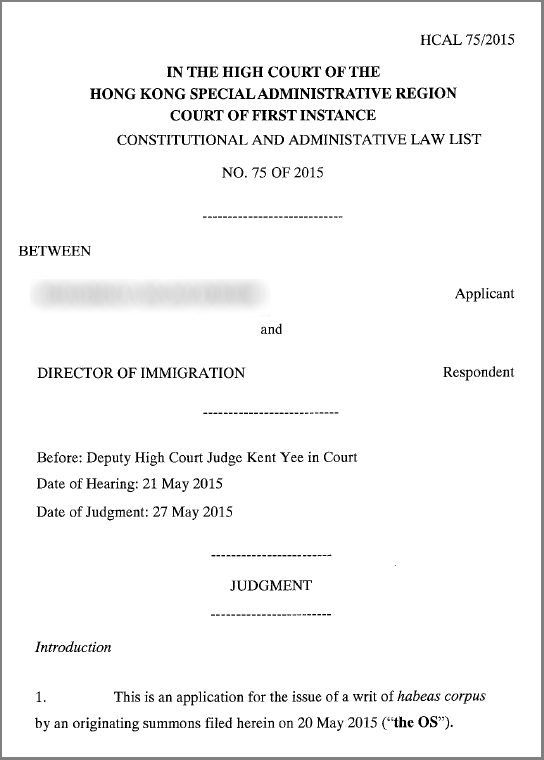
Asylum rolled over me like a black tide
May 27th, 2015 | Immigration, Personal Experiences, Rejection | Comment
My friends call me Manesh. I came to Hong Kong as a refugee in 2007 when the problems of asylum rolled over my like a black tide and drowned my hopes. This dark sea never lets me swim back to the surface and took away my dreams for a better future. Every day of asylum destroys a piece of me and my life loses meaning.
I suffered this pain for eight years and I cannot find a solution. I cannot return to my country, but also I cannot live here. So I feel that I am slowly dying. The memories of what I was before are swallowed by the darkness. I was a businessman, a political organizer, a loving father, a happy husband and a devoted son – everything was taken away from me.
Now I struggle to hold on to some dignity in asylum. It is not easy as humans need hope to support them through suffering and I have little left after eight years. The Hong Kong Immigration rejects 999 out of 1000 claimants and makes everyone feel unwanted and unwelcome. Refugees don’t get enough welfare and are not allowed to work, which turns us into professional beggars.
Refugees want a simple, safe life. We need security so that we are not worried that Immigration will send us back. We need jobs because work is important for human life – everyone understands it. Without work a person becomes sick, but we are not sick. Without work a person does not have a life, but we are not dead yet.
Truly I tell you, refugees live life in darkness. We never talk about any business or some big topic. We only talk about small things that give our lives very big problems like a cancer. For example, we don’t have enough money to pay rent. How to pay the landlord? We don’t have enough money for food. How to buy what we need to cook? We don’t have money for school books and uniforms. How to educate our children?
Here I tell you, refugee life is like prisoner life. We can walk the streets but we are trapped. We see people work, shop and enjoy, but we cannot earn money. If we do part-time jobs but are afraid of arrest and prison for 15 months. Then who will take care of our family? Some refugees fall into crime, but honestly what choice do we have? When they go to prison they are happy they don’t have to pay rent. Even somebody will cut their hair!
With respect I ask a question: Why for so many years the human rights for refugees were silent? Why nobody look at our condition of living and help to understand it is wrong? Today we hear a few voices from the same people fighting for refugee rights, but the community is silent. Are there two kind of human beings in Hong Kong, some with human rights and some without? I respectfully request that the government reconsider the policies and really protect refugees.
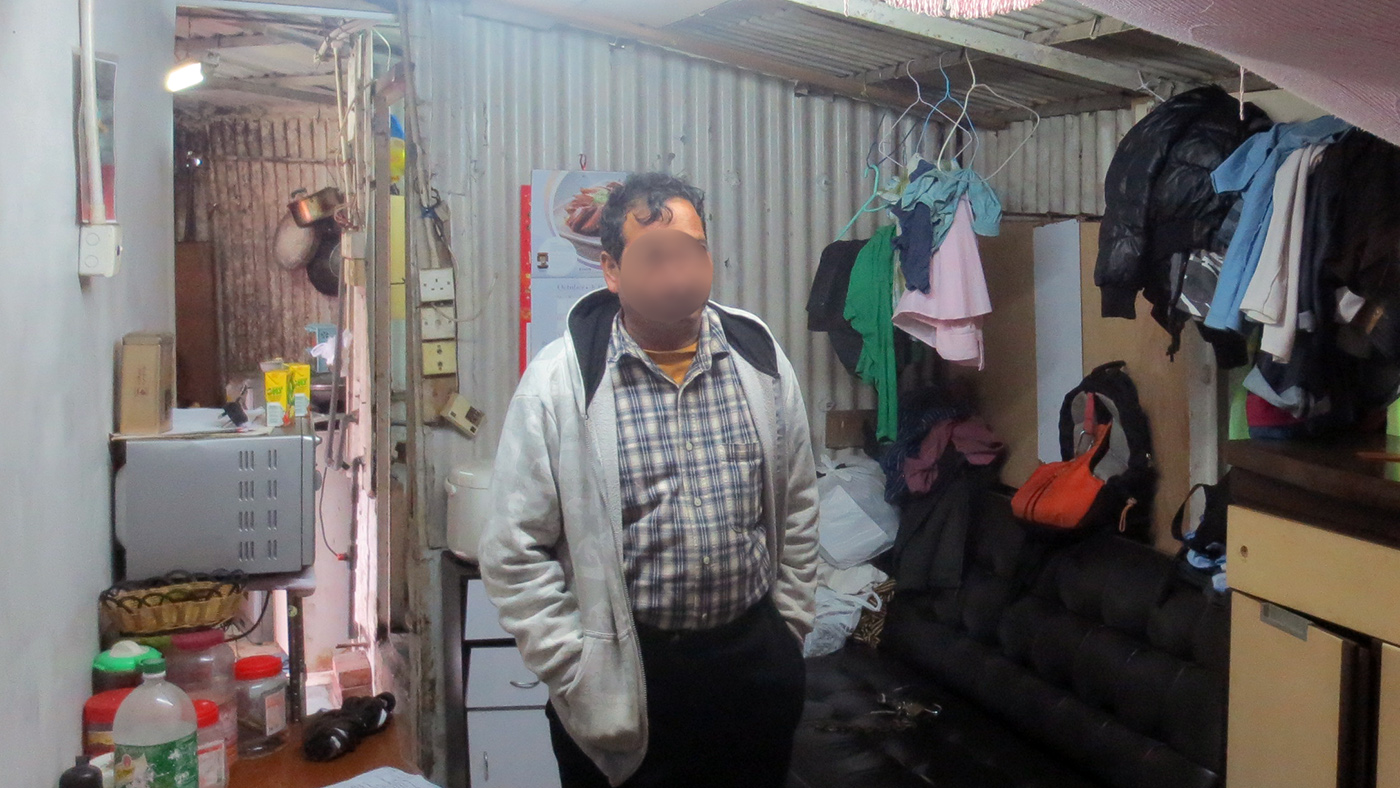
Sex abuse scandal may force United Nations to reverse its cover-up culture
May 24th, 2015 | Media | Comment
Legal team successfully counters Immigration’s hasty removal action
May 24th, 2015 | Immigration, Legal, Refugee Community, Rejection, VF Opinion | Comment
There wasn’t an empty seat in the courtroom as members of the Refugee Union attended the emergency proceedings to stop the hasty removal of a hapless South Asian refugee by the Director of Immigration. Flanked by two stern-looking Immigration officers in blue uniforms, a bewildered Mr. Q stooped apprehensively in a High Court defendant box. A dark oversize jacket draped the worries of a man who would have been deported three days earlier were it not for the timely intervention of a pro bono legal team.
It is likely that Mr. Q was profiled as undesirable by Immigration officers when he arrived at Hong Kong International Airport on 23 December 2014. He was refused permission to land and taken into custody. He subsequently lodged an asylum claim and was detained at CIC under Section 37ZK of the Immigration Ordinance that prescribing, “A claimant may be detained … pending final determination of the claimant’s torture claim.” The issue is: How long can a refugee be lawfully detained?
Trouble erupted in Mr. Q’s life after he participated in district elections in his country of origin and was assaulted and threatened that, “All your family will be wiped out if you don’t change political party.” As the 45 year-old family man was unwilling to fight back, the forsaken road of asylum beckoned and he fled to Hong Kong. On 9 March 2015 Immigration rejected his asylum claim at first instance and a troubled Mr. Q sought the assistance of the Refugee Union.
“He has a strong case and is afraid of being deported”, explains Arif of the Refugee Union, “He called me from CIC. He said that if he goes back [his country], his opponents will kill him. Immigration rejected his case and on 18 May arranged a plane ticket to remove him. He was very scared. It was a big emergency. I am very thankful to the lawyers who helped us immediately.”
Alerted by the Refugee Union, solicitor Chris Lucas and Barrister Robert Tibbo swung into action to counter manoeuvres by the Director of Immigration aimed ostensibly at expediting Mr. Q’s removal. Considerable weight should be given the fact that the lawyers had met the refugee during a pro bono legal visit to CIC on 6 May 2015, but nevertheless Immigration flagrantly ignored such legal representation to fast-track the rejection of Mr. Q’s appeal and his removal in a matter of days. Such rushed arrangements are sufficient to raise suspicion on this case.
An attentive audience followed the two-hour Habeas Corpus hearing that was opened by Barrister Tibbo’s statement: “The Director of Immigration fast-tracked the removal of my client. He has ridden rough-shod over the constitutional rights of a refugee who was warehoused in CIC, as if in an Australian off-shore processing centre. My client was detained for five months instead of being released five weeks after lodging a Non-Refoulement Claim as prescribed by law.” It was submitted that pursuant to the Ghulam Rbani Court of Final Appeal Judgement, Immigration failed in due diligence and gave rise to conduct that is now subject to a damage claim.
The legal grounds briefly state that the Director of Immigration, K.K. Chan cannot lawfully detain a claimant when it becomes clear that the determination process cannot be concluded within a reasonable time. The Ghulam Rbani judgment sets this at five weeks, not the five months of Mr. Q’s ongoing detention. Mr. Tibbo put to the court that the discretion to release a refugee must be exercised after five weeks, or the subsequent detention period becomes arbitrary and therefore unlawful.
Counsel raised a host of problems, including: looking at the Questionnaire it appears that Mr. Q did not receive proper legal representation inside CIC; he did not have access to resources and country of origin information; he attended an oral hearing without a lawyer; he did not have a lawyer for the appeal; the appeal rejection contained fundamental mistakes; the decision was not interpreted in his language; CIC officers prevented Mr. Q from faxing documents to his lawyers; and, a copy of Immigration’s Notice of Decision had not been provided to the legal team, despite formal request made to the Director of Immigration.
“Given the complexity of his claim,” Tibbo submitted, “My client should have been released at the five week mark. Instead he was discriminated. Many other claimants have been released. Why not him? He was treated differently from others released on recognizance, many of whom are in this courtroom. The Director of Immigration cannot detain arbitrarily and cannot do this without good reason. My client should not be removed from Hong Kong pending the exhaustion of his legal rights, including a judicial review of the rejection of his Non-Refoulement Claim and a damage claim for unlawful detention.”
The Honourable Judge Kent Yee presided fairly and extended the stay on the removal order until 29 May, indicating that he intended to give this matter further thought before issuing a written judgement on 26 May 2015. The defence team was encouraged by the extension that granted time to apply for Legal Aid and successfully resist Immigration’s attempts to hastily remove Mr. Q arguably in violation of his right to asylum.
